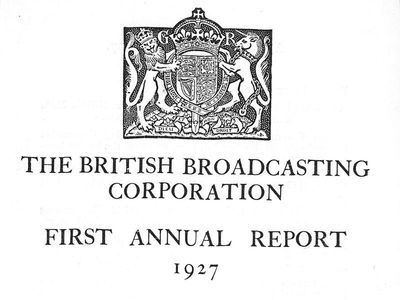BBC Handbooks, Annual Reports and Accounts, 1927-2002
_1583244951.jpg)
This collection contains handbooks, annual reports and accounts published by the British Broadcasting Corporation (BBC) between 1927 and 2002. In addition, the collection includes a review of each year’s public service broadcasting, with detailed schedules, audience research, performance and objective tables, commentaries, and editorials. Together, these documents provide students and scholars with a unique opportunity to examine the social and cultural forces that shaped Britain in the 20th century.
Note: This collection is accompanied by an online guide written by Dr Hugh Chignell.
(The BBC word mark and logo are trade marks of the British Broadcasting Corporation and are used under licence. BBC Logo © BBC 1996.)
Undoubtedly one of the most important qualities of the handbooks is the way they connect the researcher to a distant time and culture; those dating from the 1930s are of particular value.
Key Documents
(Video)
(Exhibit)
Insights
Filters








